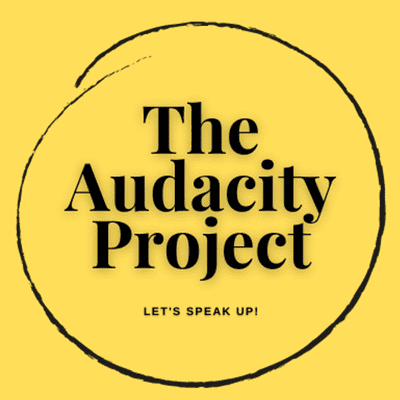
The Audacity Project (Towards a feminist India)
Englisch
Kostenlos bei Podimo
Kostenlos hören bei Podimo
Starte jetzt und verbinde dich mit deinen Lieblingspodcaster*innen
- Vertraut von über 1 Mio. deutschen Hörer*innen
- Über 1.000 lokale Podcasts und Shows – nur bei Podimo
- Keine Zahlung nötig
Mehr The Audacity Project (Towards a feminist India)
It's time to speak up
Alle Folgen
9 FolgenSexual Harassment in Zoom Offices (& Startups)
In this final segment of the Sexual Harassment at Work series, Shivangi Prasad, the founder of Posh at Work, talks about a few challenges that modern work spaces - from zoom offices to startups - present, and points out the information asymmetry inherent in these spaces, preventing one from seeking legal help.
Rethinking Legislation on Men and Transgender Persons (Sexual Harassment at Work)
Shivangi Prasad, the founder of POSH@Work, breaks down the legal, psychological and social challenges surrounding protection of men and transgender persons at work.
Busting Myths and Misconceptions on Sexual Harassment at Work
"But, he's my best friend!", "No, She's lying!", "We are one big happy family, there's no place for harassment in here!" - tired of hearing these responses when someone comes forward to share their experience? In this segment of a 3-part conversation, Swetha and Shivangi Prasad, the founder of POSH at Work, discuss the hidden misogyny and sexism regarding enforcement of POSH policies at work. Shivangi then shares how she helps companies overcome harmful biases and discusses how companies can protect the privacy and dignity of the complainants better.
Gender and Politics (In Conversation with Akhil Neelam)
Jaysri and Akhil discuss the importance of the representation of gendered interests in politics, and question if the current political system and leaders are at all capable of breaking down the oppressive, patriarchal, capitalistic structures that prevent women's access to health, education, safe-living and other factors that are fundamental to women's empowerment. The episode also dives into how each of us has to deliberately train ourselves to empathise with other genders to be able to effect change. For more details on Akhil's work: https://www.cgapsouthasia.org/
On Creating Value through Diversity - In Conversation with Niti Nadarajah
This conversation from the "feminist equity at work" series explores what true diversity and inclusivity at work looks like. Importantly, it addresses topics like motherhood, pregnancy loss, and vulnerability, and discusses how workplaces can factor in gendered truths effectively in their design and policy making.















































